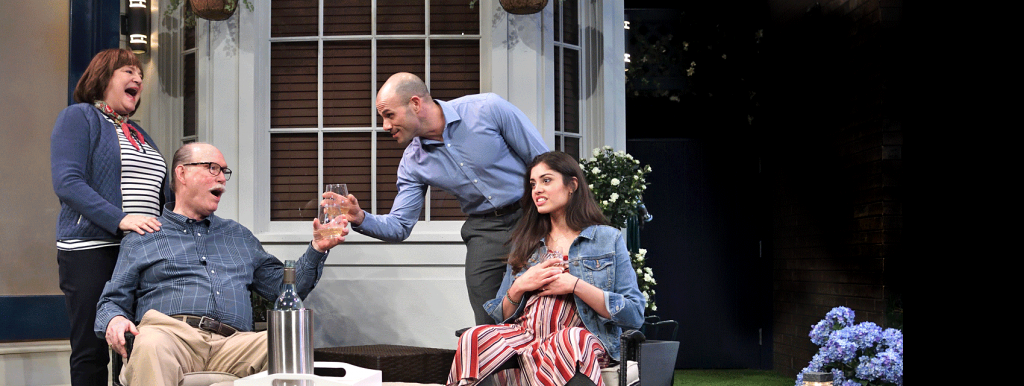10/19/18
A warm welcome to the beginning of Trinity Rep’s 2018-19 season, and to our production of Jane Austen’s beloved classic, Pride and Prejudice. Since we announced our season last year, so many folks have talked to me about how much they love this book. Austen’s novel was first published in 1813, and after 200 years, it still has the power to delight and inspire. It is easy to forget, however, that it was a bit of a literary departure in its day.
Austen was writing at the height of the movement of Romanticism, yet her style of writing was quite different from the mainstream. Her novels presented a realistic representation of life, particularly the lives of young women, by comparison to the overly sentimental literature that was being produced around her (almost exclusively by men). Pride and Prejudice’s heroine, Elizabeth Bennet, does not sigh or faint or pine, like the fictional girls of so many of the novels of this period. She isn’t trying to impress anyone, male or female. She just happens to be witty, and bold, and passionate. She is, simply and honestly, herself.
Even more than the stylistic departure, Elizabeth is perhaps the most radical aspect of Austen’s book. She has no intention of winning the affection of the haughty and overly critical Mr. Darcy, or any other man; she is just trying to survive the highly gendered society that has been forced upon her with her dignity intact. She exceeds all of Darcy’s expectation by accident, simply by being genuine and unexpected, without art, artifice, guile, or regard to “how a girl should behave.” This certainly is the reason that she remains one of the most beloved characters of English literature.
Kate Hamill’s adaptation is an exciting departure from other adaptations of Pride and Prejudice, for a couple of reasons. First, it has a very strong, contemporary point of view about its characters and their lives built right into it, while retaining all of the great energy of the original story. Second, it calls for a doubling of actors throughout the script that erases lines of gender. Our audience has seen this at Trinity Rep many times before, where actors play roles of different genders as a result of a storytelling necessity. Yet in the rigidly gendered world of Jane Austen’s novel, this choice takes on a special valence, asking us as an audience to consider how gender shapes the narrative event.
Enter director Birgitta Victorson and her talented cast. They have stepped boldly into the roles that the play has cast them in, regardless of gender. Their work has been, from day one of rehearsal, to tell this wonderful story that so many love, so much. They have found the humor and pathos and joy that live in Austen’s ur-narrative. Like Lizzy Bennet, they bring their true selves to the production, for you.
I can’t wait for us all to re-discover Austen’s Pride and Prejudice together here at Trinity Rep. I know that hearing classic stories in a new way will be something that we will be doing all season long together. And I look forward to seeing you at the theater on the journey.

—Curt Columbus
The Arthur P. Solomon and Sally E. Lapides Artistic Director

